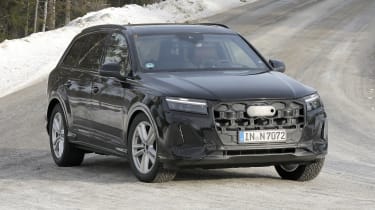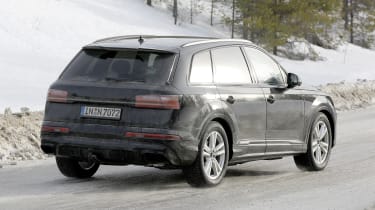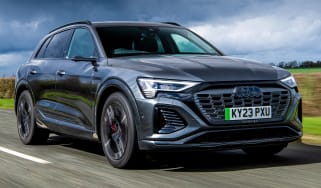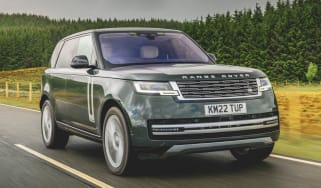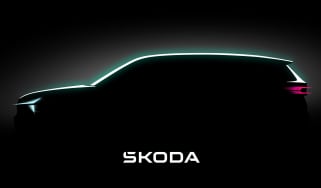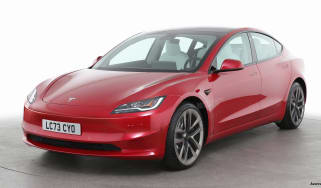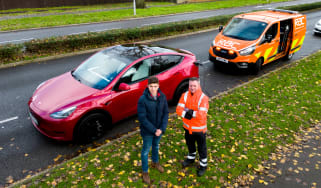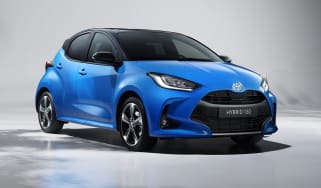New Audi Q7 facelift caught cold-weather testing ahead of launch
Before it unveils a pure-electric replacement later this decade, Audi will refresh its Q7 SUV with tweaked styling and a potential PHEV version
In the coming years, Audi will embark on its biggest product launch in history, with more than 20 new cars planned by 2026. While EVs will take the spotlight, updated versions of Audi's combustion-engined models are also planned - including a facelifted Q7 SUV.
The second-generation Q7 was launched back in 2015, and received what we thought would be its mid-life facelift in 2020. As these spy shots indicate, Audi will extend the lifespan of its large SUV with yet another update, with these latest photographs providing our best look yet at the design changes.
Restyled Digital Matrix LED headlights and a new radiator grille have been installed at the front, the latter of which features a bold U-shaped mesh layout and a more rounded shape. Thin running light strips in the headlights replace the current car's arrow shaped, segmented units, and the lower bumper has been decluttered for a sleeker look.
The overhaul will be less extensive at the rear, however, where the Q7 will receive new tail light graphics and a resculpted valance panel. Fresh paint colours and new wheel designs could potentially arrive as part of the update, too.
The current Q7 has a 12.3-inch driver’s display which Audi calls its ‘Virtual Cockpit’, along with a 10.1-inch central touchscreen for infotainment uses and a lower 8.6-inch touchscreen reserved for the climate control. This same set up is utilised in the newer Q8 e-tron so we don’t expect huge changes, although Audi could update its infotainment software and add new functions to its ‘myAudi’ smartphone app.
In terms of powertrains we’re not likely to see any new engines introduced to the Q7 lineup, with Audi’s focus aimed more towards its all-electric e-tron range. Currently, the standard Q7 has two diesel engines and one petrol - all 3.0-litre V6 units with 48-volt mild-hybrid assistance.
The plug-in hybrid Q7 e-tron has been removed from the UK lineup, but we could see it return with a new battery. Previously it came with a 14.1kWh battery with just over 26 miles of electric-only range, but since then the Q5, A6 and A7 have all gained 17.9kWh batteries for their plug-in hybrid versions - which should easily fit within the much larger Q7’s body.
Given that all new Audis will be electric from 2026, it’s certain that this facelift will be the final combustion-engined Q7. The name could transition to ‘Q7 e-tron’ for the next generation, when it will serve as a pure-electric rival to the Mercedes EQS and Volvo EX90. The new Q8 e-tron is also a strict five-seater, so there’s certainly room for a seven-seat Q7 e-tron in the Audi range.
Now read our list of the best luxury SUVs...

